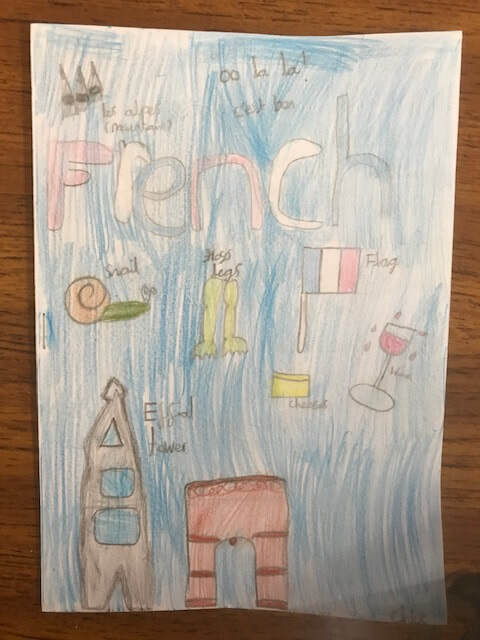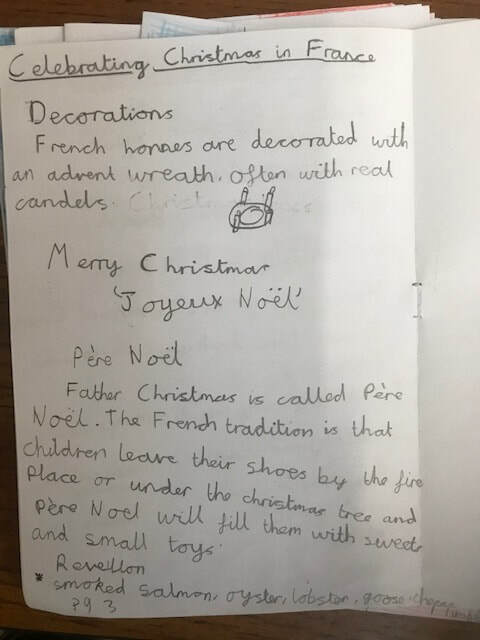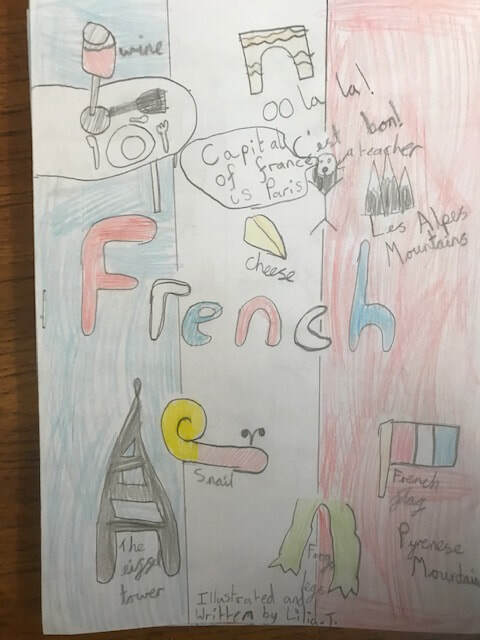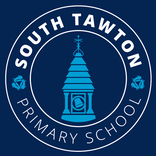Modern Foreign Languages – Curriculum Statement
“The limits of my language are the limits of my world” Ludwig Wittgenstein (philosopher)
Curriculum Intent
The intention of the French curriculum at South Tawton Primary School, above everything, is to ensure children develop a love of learning languages. Pupils learn high-frequency structures that can be manipulated to talk about themselves and others, as well as use the language for practical purposes. Phonics are taught explicitly and are carefully sequenced and revisited which in time, leads to pupils having the confidence to read out loud independently in French.
Our curriculum extends pupils’ cultural capital and deepens pupils’ understanding of the world. Pupils learn about France and the Francophone world and its customs, traditions, and history as well as traditional songs and stories.
Pupils acquire a range of strategies for language learning, such as language detective skills for unfamiliar language and how to learn language off by heart. We do not know which languages our pupils may need in the future, but we understand the skills they will need to approach language learning in later life.
Aims
The national curriculum for modern foreign languages aims to ensure that all pupils:
Implementation
Pupils receive 30-45 minutes of French a week. This comprises of one discreet lesson, as well as short follow up activities throughout the week to consolidate learning.
Our approach ensures pupils are confident language learners. New language is carefully scaffolded, and support is only removed once language is acquired to ensure high success rates. Activities and resources are adapted and developed so that all pupils, including those with SEND, can feel a sense of achievement. Language is structured to enable pupils to revisit vocabulary, grammar, and phonics in different contexts. Over time, following extensive practice, pupils use language spontaneously.
Language is introduced through knowledge organisers; ensuring pupils can communicate accurately in full sentences. Once pupils have leant these sentences off by heart, they examine the grammar. Understanding how languages are structured empowers pupils to learn new languages in the future, as well as enabling pupils to manipulate language to create their own sentences in French.
New language is modelled through listening activities. Pupils then undertake a variety of reading tasks before moving onto speaking and writing tasks. Teachers prioritise activities that lead to pupils using language spontaneously; pupils practise recognising and responding to language at speed.
Impact
As a result of our curriculum, we have a community of enthusiastic, tolerant, and curious linguists who enjoy showcasing their developing knowledge and skills. Pupils communicate in French with each other and their teacher within and outside of dedicated French lessons, such as the register routine, and basic classroom instructions. Pupils understand that every language has a structure and appreciate the differences and similarities with English. Pupils are well prepared for language learning in later life as well as KS3, whether that be French or another language.
“The limits of my language are the limits of my world” Ludwig Wittgenstein (philosopher)
Curriculum Intent
The intention of the French curriculum at South Tawton Primary School, above everything, is to ensure children develop a love of learning languages. Pupils learn high-frequency structures that can be manipulated to talk about themselves and others, as well as use the language for practical purposes. Phonics are taught explicitly and are carefully sequenced and revisited which in time, leads to pupils having the confidence to read out loud independently in French.
Our curriculum extends pupils’ cultural capital and deepens pupils’ understanding of the world. Pupils learn about France and the Francophone world and its customs, traditions, and history as well as traditional songs and stories.
Pupils acquire a range of strategies for language learning, such as language detective skills for unfamiliar language and how to learn language off by heart. We do not know which languages our pupils may need in the future, but we understand the skills they will need to approach language learning in later life.
Aims
The national curriculum for modern foreign languages aims to ensure that all pupils:
- develop an interest in learning other languages
- introduce young children to another language in a way that is enjoyable and stimulating
- encourage children’s confidence and creative skills
- stimulate and encourage children’s curiosity about language
- encourage children to be aware that language has a structure and that the structure differs from one language to another
- help children develop their awareness of cultural differences in other countries.
- develop listening, speaking, reading and writing skills.
- lay the foundations for future language learning.
Implementation
Pupils receive 30-45 minutes of French a week. This comprises of one discreet lesson, as well as short follow up activities throughout the week to consolidate learning.
Our approach ensures pupils are confident language learners. New language is carefully scaffolded, and support is only removed once language is acquired to ensure high success rates. Activities and resources are adapted and developed so that all pupils, including those with SEND, can feel a sense of achievement. Language is structured to enable pupils to revisit vocabulary, grammar, and phonics in different contexts. Over time, following extensive practice, pupils use language spontaneously.
Language is introduced through knowledge organisers; ensuring pupils can communicate accurately in full sentences. Once pupils have leant these sentences off by heart, they examine the grammar. Understanding how languages are structured empowers pupils to learn new languages in the future, as well as enabling pupils to manipulate language to create their own sentences in French.
New language is modelled through listening activities. Pupils then undertake a variety of reading tasks before moving onto speaking and writing tasks. Teachers prioritise activities that lead to pupils using language spontaneously; pupils practise recognising and responding to language at speed.
Impact
As a result of our curriculum, we have a community of enthusiastic, tolerant, and curious linguists who enjoy showcasing their developing knowledge and skills. Pupils communicate in French with each other and their teacher within and outside of dedicated French lessons, such as the register routine, and basic classroom instructions. Pupils understand that every language has a structure and appreciate the differences and similarities with English. Pupils are well prepared for language learning in later life as well as KS3, whether that be French or another language.
Rolling programme for 21/22 |
Autumn |
Spring |
Summer |
Year 3/4 |
Introducing myself Classroom language Likes and dislikes |
Using verbs in the 1st person Using numbers 1-15 |
Using language for practical purposes e.g shopping |
Year 5/6 |
Introducing myself and others Classroom language Opinions and reasons of objects Using adjectives |
Using verbs in the 1st and 3rd person Using negative verbs Using numbers 1-31 |
Asking and answering questions for practical purposes e.g. shopping |
Each term we will learn a traditional French rhyme or song which will build confidence with French phonics.
Click here for our French Curriculum Progression
Click here for Spring Term Y3/4 Knowledge Organiser.
Click here for Spring Term Y5/6 Knowledge Organiser.
Click here for Summer Term Y3/4 Knowledge Organiser.
Click here for Summer Term Y5/6 Knowledge Organiser.
Click here for Spring Term Y3/4 Knowledge Organiser.
Click here for Spring Term Y5/6 Knowledge Organiser.
Click here for Summer Term Y3/4 Knowledge Organiser.
Click here for Summer Term Y5/6 Knowledge Organiser.





